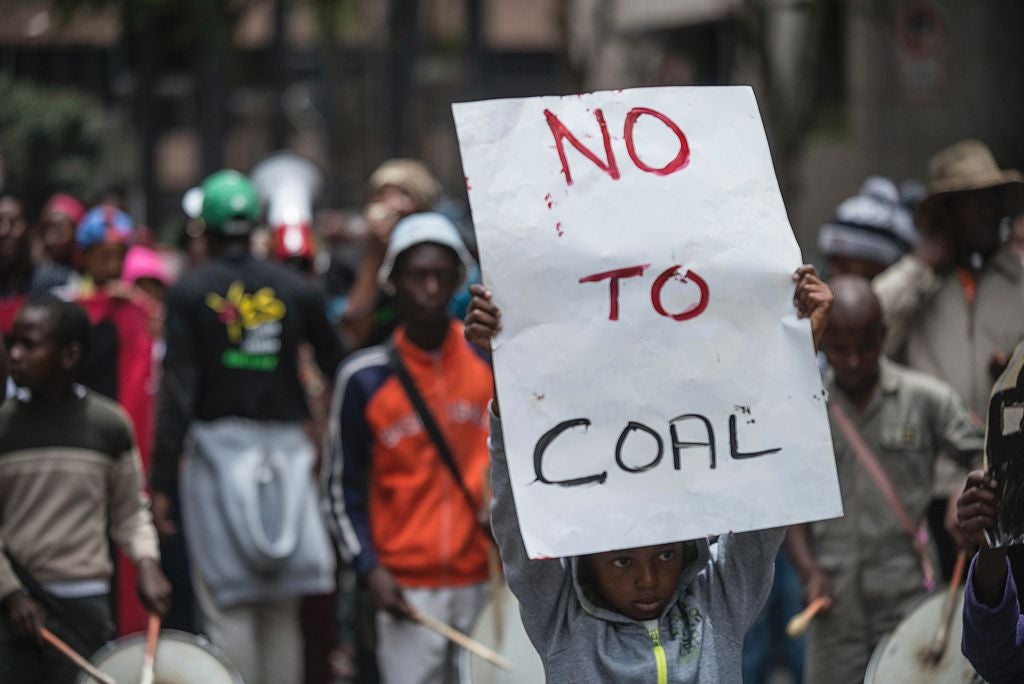Our future depends on helping developing countries ditch coal power
We can use concessional finance to help developing economies embark on a much-needed energy transition, writes Mafalda Duarte


Your support helps us to tell the story
From reproductive rights to climate change to Big Tech, The Independent is on the ground when the story is developing. Whether it's investigating the financials of Elon Musk's pro-Trump PAC or producing our latest documentary, 'The A Word', which shines a light on the American women fighting for reproductive rights, we know how important it is to parse out the facts from the messaging.
At such a critical moment in US history, we need reporters on the ground. Your donation allows us to keep sending journalists to speak to both sides of the story.
The Independent is trusted by Americans across the entire political spectrum. And unlike many other quality news outlets, we choose not to lock Americans out of our reporting and analysis with paywalls. We believe quality journalism should be available to everyone, paid for by those who can afford it.
Your support makes all the difference.If coal were a country, it’d be the single-largest greenhouse gas emitter by a long shot. In 2020, coal combustion released 13.7 gigatonnes of carbon dioxide into the atmosphere, accounting for 39 per cent of CO2 emissions.
To head off the worst impacts of climate change and make the Paris Agreement a reality, we have to break our coal habit for good and hasten the shift to clean energy without leaving anyone behind. This is an imperative everywhere, but the steepest political and socioeconomic barriers to progress are in the developing world. As leaders gather in Glasgow next month for Cop26, we have a historic opportunity to advance a coal-free economy by channeling support to the nations that need it most.
The story of coal is that of two very different development patterns. In the world’s richest nations, demand for coal-fired power is falling sharply, down 18.6 per cent since 2010. Organisation for Economic Co-operation and Development (OECD) countries retired more coal plants in 2019 than at any point in history, and clean energy is increasingly the norm. Wind farms and solar plants account for an astonishing 95 per cent of new energy commissions in industrialised countries.
Meanwhile, the picture is dramatically different in developing countries, where coal occupies 44 per cent of the power grid and is fuelling expansive economic growth. In a rising Global South, the economics can still favour coal power in the short term.
The source of coal’s staying power is complex. One explanation is that like in many other parts of the world, coal production is protected from the ebb and flow of the free market. Globally, 93 per cent of coal plants are tethered to long-term contracts and non-competitive tariffs, giving them free rein to stay online years or even decades after they’ve lost their competitive edge. Adding to that, coal is the largest beneficiary of fossil fuel subsidies, maintaining a dangerous status quo for our planet.
Another cause is less obvious but no less critical. Even though emerging economies offer tremendous investment potential, private financiers are wary of financing clean infrastructure in countries that lack robust renewable energy policies. For example, a BloombergNEF survey of 108 emerging economies found that only 41 per cent had regulatory environments that lived up to their clean energy targets.
As we stare down the most pressing climate crisis, the international community must unite behind solutions to help developing countries overcome social, economic, and political obstacles to a swift and equitable coal transition.
To this end, one tool proven to be effective in related climate arenas is concessional climate finance, that is, grants or below-market-rate finance often disbursed from public and multilateral entities to spur joint investments in technologies, policies, and communities laying the groundwork for a better climate future.
I lead the Climate Investment Funds (CIF), one of the world’s largest multilateral funds dedicated to climate action in developing countries. Through concessional finance, we’ve helped unlock $61bn (£43bn) from private sector, multilateral, and government partners to support groundbreaking climate action in developing nations, including Morocco’s Noor-Ouarzazate concentrated solar power plant – the world’s largest – and the first geothermal facility in South America.
We can and should now use concessional finance to help developing economies embark on a much-needed energy transition in two ways. First, it is self-evident that we must continue to scale up investment in clean energy capacity while ensuring our power systems are prepared to absorb greater shares of variable renewable energy. There is no avoiding this.
Second, and equally important, concessional finance can embolden partners to come together and pilot urgent solutions intentionally designed to transition out of coal and do so with minimal impact on communities that depend on fossil fuels for their livelihoods. For this, we need to ensure they have a say in how the transition takes place and who ultimately benefits.
While developed countries have allocated large pools of funding for this purpose, no such facility has existed for developing countries until now. CIF’s newly established Accelerating the Coal Transition and Renewable Energy Integration initiatives will provide flexible, predictable concessional capital to test and scale innovations for accelerating a just transition from coal and expanding renewable energy capacity.
We have taken this step, but this is and must be just the start of a wider movement for deep transformation in our energy sector and other sectors. Our shared climate future depends on it.
Mafalda Duarte is CEO of the Climate Investment Funds, one of the world’s largest multilateral funds working to pilot and scale climate solutions in developing countries
Join our commenting forum
Join thought-provoking conversations, follow other Independent readers and see their replies
Comments